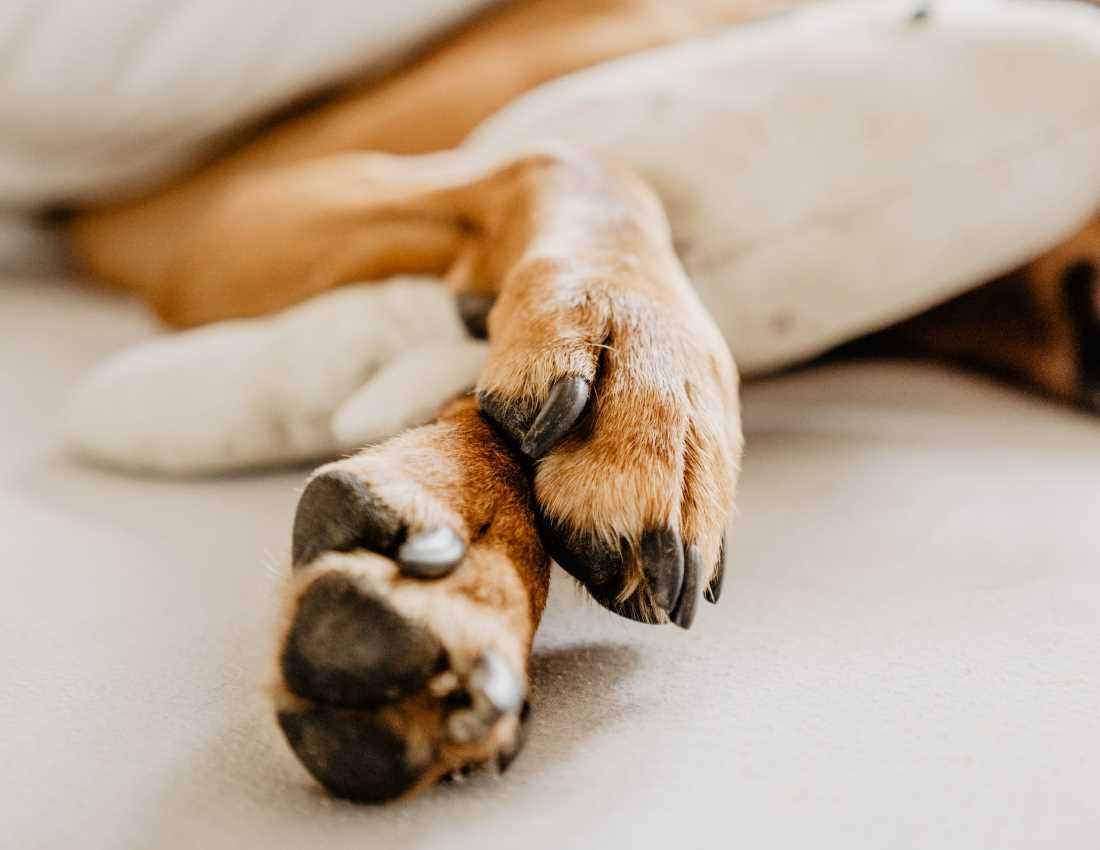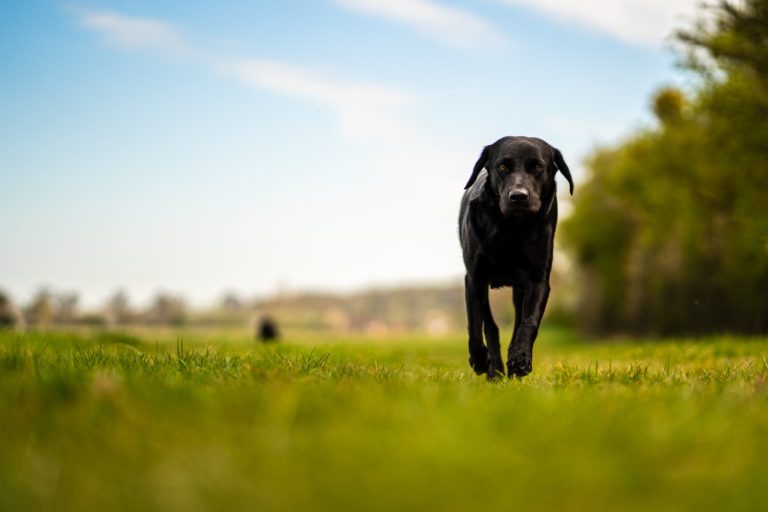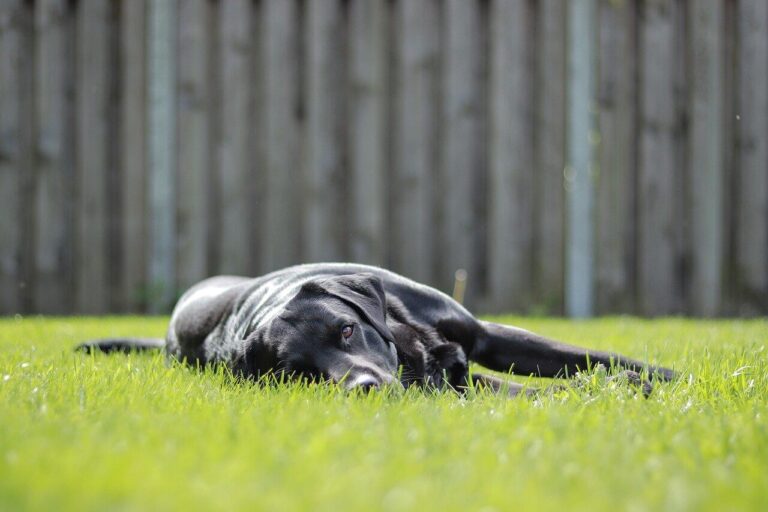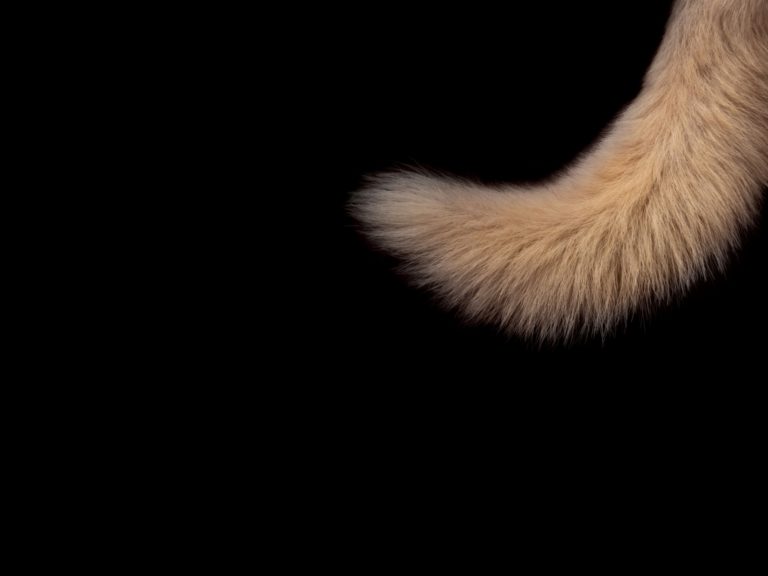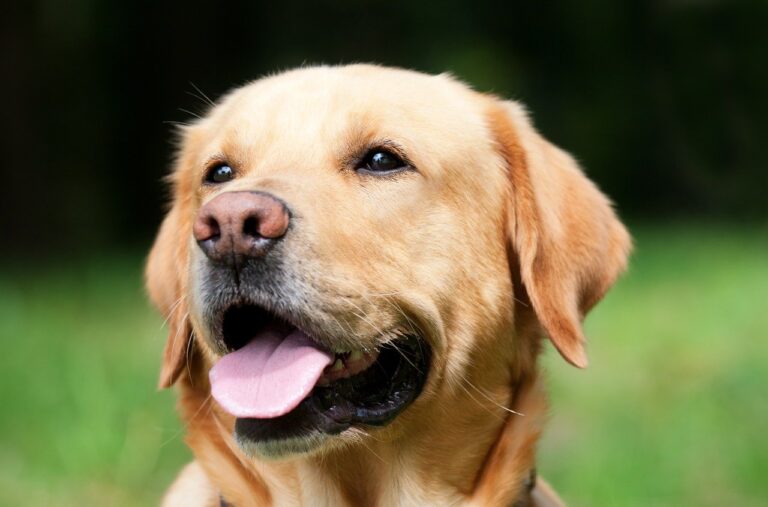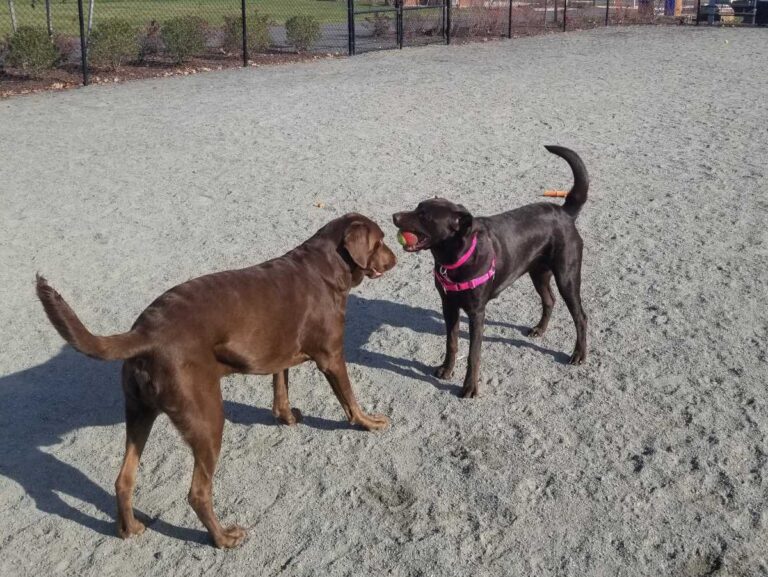Paws are a delicate area of your dog’s body and one that you might notice an issue with from time to time. But is your dog’s behavior normal, or a sign of a health issue you may need to seek treatment for?
Paw chewing or licking is often a noticeable concern for dog owners, especially Labrador Retriever owners. It can be really uncomfortable for your Lab to have itching or pain in such a sensitive area, and it can cause significant interference in daily activities.
Labs typically have large, webbed feet that make them excellent swimmers, skilled retrievers, and able to move great distances at a fast rate of speed.
But if you’re noticing an issue with your Lab’s paws, especially if they are chewing, biting, or licking those paws on a frequent basis, you might be concerned there’s a problem going on.
(This article may contain affiliate links. As an Amazon Associate I earn from qualifying purchases. Learn more)
And your intuition might be right.
We recommend you seek out your veterinarian for their expert advice on your specific pet and circumstances, but we’re going to also give you some information to help know what to ask and what to look for.
Let’s cover some of the most common reasons your dog may be struggling with paw chewing, licking, and itching: allergies, a broken nail, or injury/irritation.
Paw Checks – A Good Idea
It’s important to frequently give your Lab’s paws a quick check as part of monitoring their overall health and care. A good time to do this is during Lab bathtime or when preparing for a walk or outdoor activity.
Be aware your Lab might squirm or paw at you while you’re attempting to gently see how their paws look.
While your Lab might not be thrilled with you handling their paws, a quick check can be helpful to keep an eye on any possible issues that may come up that you need to address with your veterinarian.
We also suggest for puppy owners that you gently get your pup acclimated to their paws being briefly and softly handled by you, which will make this easier as they get older.
And you’ll be less likely to take a paw to the face by accident from a squirming dog later on.
So what types of things can cause your dog to chew his or her paws?
Allergies
Allergies are a frequent cause of paw irritation and itching in pets, which may cause your dog to bite, chew or lick their paws.
Allergies have become more commonly diagnosed in Labrador Retrievers in recent years, especially in chocolate Labs.
We’ve been through extensive allergy treatments lasting many years with one of our chocolate Labs, which was both expensive and exhausting. He was worth it, though!
Dogs are susceptible to developing allergies just like their human counterparts, and while this typically appears within the first few years of life, it’s possible your dog can develop allergies later on in their lifespan.
As the typical Labrador lifespan is up to 14 years, this can mean that adult and even senior dogs could be showing allergy symptoms which have the possibility of affecting their paws as well.
If allergies are affecting your dog, your Lab’s paws may appear somewhat red in color, denoting skin irritation, especially in the webbing.
They may appear to have a rash overall or just spots of general redness on some or all of their paws.
If the irritation or itching is persistent enough, your Lab may also have chewed on their skin or chewed off pieces of fur from their paws, which may also give them a rough appearance.
Allergies often show up in the ears and on the paws, as well as on the belly of the dog. Some allergies are caused by food reactions and others from environmental causes.
There are many treatment methods for allergies in dogs, and there are definite steps you can take to make your dog more comfortable, including switching their food or trying medication from your doctor.
These treatments can reduce paw chewing while also making your dog more comfortable overall.
Make sure you talk with your vet about the best treatment plan for your dog.
A Broken Nail
Labradors have dark toenails on their paws that need occasional trimming (tricky – which we recommend you leave to your vet or vet tech, unless you’re already a pro at this).
Because these nails sometimes grow longer between trims (especially if your Lab is an inside, sleep-on-the-sofa-all-day type of Lab) their nails can occasionally break off unexpectedly at an angle that’s uncomfortable for your dog.
This can be painful and can result even in some bleeding for your dog, depending on where their nail breaks.
Labs are a very active and athletic breed, so this can happen just in daily life.
Sometimes running, jumping, or retrieving either inside or outside can cause a dog’s nail to break, and your dog may respond by licking it (or really, slobbering all over it) in trying to provide a little self-care for their paw.
We’ve had our Labs break a nail just chasing each other throughout the house with a bout of Dog Zoomies!
Injury or Irritation
Sometimes Labs can injure their paws while playing, retrieving, or hunting. This can be something like a bite from an insect or spider, or stepping on sharp thorns, weeds, or thistles.
Your Lab can also get something sticky (like tree sap) stuck in the webbing of their paws, which can contribute to irritation or excessive moisture growth on their skin. They could develop a bacterial or fungal infection in the skin affecting the paws.
You can also encounter other animals in the wild (such as rattlesnakes, like we did) where your Lab’s paws can be injured by a bite.
Sometimes you won’t even be aware that this has occurred, even if you were near your pet when it happened.
Snakes can be hard to see in some places until you’re on top of them, which makes them a significant risk to a curious and friendly Labrador.
The more you take your Lab out in the backcountry or out of your backyard, the more this will be something you need to watch for.
Be aware of the conditions in your area and what critters you need to watch out for in areas you’re taking your dog to, especially if you’re visiting a climate or location that’s unfamiliar to you.
Your Lab can also have paw injury from stepping on a rock or broken glass while on a walk, which can cause them to limp or their paws to bleed.
All of these can cause your dog to lick or chew their paws both immediately after the injury occurs and later on throughout the healing process.
If your vet diagnoses your Lab with an injury, don’t be surprised if they give you an E-Collar (The Cone of Shame) for your dog to wear to prevent further licking or biting of the injury site.
Seek Trusted Medical Care
Your best resource in solving your dog’s paw itching, chewing or biting is to seek immediate treatment from your veterinary office. Don’t try to solve this at home with some internet remedy or topical treatment you found on social media.
While things like allergies, broken nails, and injury can cause paw chewing, itching, or biting, the best resource for you is to seek expert advice from your veterinarian on how to treat your dog’s specific issue.
They’ll be best able to diagnose the exact causes of your dog’s particular issue and give you the fastest remedy to resolve it and make your pet more comfortable.
It’s important to bring up any paw concerns with your vet because they can cause pain for your dog, as well as affect your Lab’s ability to walk, play and get exercise. And you don’t want your Lab running and playing on paws that are painful or uncomfortable!
You’ll also want to get your dog treated as fast as possible by your vet to prevent any risk of infection or complications.
Labs are loved for their sweet and cheerful personalities, and sometimes won’t let you know something’s wrong physically until you find it first.
The good news is that with proper care and treatment your dog’s paw issues should clear up with the guidance and help of your vet.

